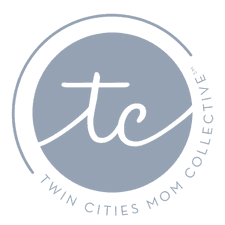{Disclosure: Twin Cities Moms Blog has partnered with the MN Department of Health for this sponsored post, written by Minnesota mom, Ashley Shelby.}
Motherhood comes with a host of choices to make about what is best for you, your family, and your child. The Twin Cities Moms Blog team has a variety of moms who want to embrace these choices instead of feeling guilty or judged for them! Does your family vaccinate?

Back when I was in my twenties and living in New York, a perpetually single friend of mine shared yet another story of a date gone awry. An unapologetic science evangelist, he found himself sitting across the table from a woman who doubted evolution and who believed the earth was six thousand years old. “What about carbon dating,” he asked.
“I don’t believe in carbon dating,” she replied.
Jeff’s response: “I don’t believe we’ll be dating.”
After I became a parent, I thought about my friend’s response frequently. Except instead of giving the cold shoulder to a Creationist date, I made opinions on vaccines my own litmus test for “mommy dates.” If you didn’t vaccinate your children, then our children wouldn’t get together.
This was back in the days when the vaccine conversation seemed to me very straightforward—either you believed vaccines were the greatest public health achievement in human history or you didn’t. In fact, I felt so strongly that I started a blog, Moms Who Vax, to help tell stories about why parents vaccinate their children.
But then a couple of things changed. First, I got a little farther down the parenting path, and a little wiser. Second, I got involved in vaccine advocacy work by helping to start a local and national parent-led grassroots organizations that aim to increase vaccine coverage. The more parents I encountered through this work, and in my own day-to-day life, the more I realized that the number of parents who don’t vaccinate their children at all is a tiny minority of parents. Instead, I was startled to realize that the majority of parents who don’t vaccinate are not anti-vaccine. They are vaccine-hesitant.
Just like I was.
I delayed my oldest child’s MMR shot at 12 months “just to be safe.” I only ended up delaying for three months until I began to have trouble sleeping due to thinking about the worst-case scenario and how I would feel if my child got a disease that I could have prevented.
I would never have called myself “anti-vaccine.” I would have called myself “cautious.” In truth, I was one of the thousands of parents who are vaccine-hesitant—a fairly new term that describes parents who don’t feel they have enough information to make informed decisions about vaccines, or who are fearful of serious side effects (which are rare) but not opposed to vaccination in general. But the term “vaccine-hesitant” was not around eight years ago when I was making my decision about delaying my son’s MMR shot. However, it has gained traction in the last few years, as more and more parents have spoken out about the decision-making process that led up to their choice to vaccinate.
That process is more complicated than one might expect—more complicated than, for example, the decision to give one’s child antibiotics for an infection. For me, and for many of the parents I know, the decision making process included consulting with our pediatrician, of course, but also consulting the Internet, and one another. My mother found my late-night internet searches incomprehensible. What for her was a straightforward decision—vaccinate your kids, protect them from disease—was for me, in this social media-sodden world, a fraught choice. Why? One big difference between my mother’s decision making process and my own is the easy access to all kinds of information—reliable and not-so-reliable—that I have at my fingertips. Whereas my mother consulted a pediatrician (and maybe Dr. Spock), parents today can go online, type in the word “vaccines,” and find themselves awash in all kinds of data, anecdotes, and opinions.
In 1977, when I was born, parents relied on the recommendations of the American Academy of Pediatrics (AAP), the Centers for Disease Control and Prevention (CDC), and other science-based organizations that studied vaccines and their efficacy. Calls to avoid vaccines were rarely heard when I was an infant, mostly because the sentiment was itself rare. Thirty-plus years later, that sentiment remains relatively rare, but it feels pervasive because of the advent of the internet and the way social media makes every opinion or assertion of fact feel equally valid. In addition to trusted resources, like the AAP and the CDC, I stumbled upon anecdotes from parents who believe vaccines harmed their child, as well as claims of a worldwide conspiracy among governments, pharmaceutical companies, and providers to hide alleged dangers of vaccines.
My mom confronted none of these opinions, and so did not need to sort through conflicting anecdotes and scary scenarios and then weigh them against the advice she was receiving from her pediatrician. She did not have to make this important parenting decision in a state of anxiety, even fear. I did, and so do many parents today. Luckily, for me, fear of my child contracting a vaccine-preventable disease trumped my fear of unsupported and even disproven anecdotes of vaccine dangers.
But it’s important to acknowledge one thing when it comes to vaccinating one’s children: It’s normal to have questions. In this day and age of relentless social media, it’s also normal to be anxious or fearful—I certainly was. In fact, I was vaccine-hesitant. Thanks to my work with Voices for Vaccines and the Minnesota Childhood Immunization Coalition, I’ve learned a few things about what it means to be vaccine-hesitant.
- First—and most important—a vaccine-hesitant parent is not anti-vaccine. Chances are he or she will vaccinate his or her children.
- Second, a vaccine-hesitant parent simply has questions, which can be answered. In the sea of vaccine information you find online, it’s important to know about reliable resources that are backed by science. Here are a few good ones:
- American Academy of Pediatrics (http://www2.aap.org/immunization/)
- Vaccine Education Center at Children’s Hospital of Philadelphia (www.chop.edu/centers-programs/vaccine-education-center)
- Minnesota Department of Health (www.health.state.mn.us/immunize)
- Centers for Disease Control and Prevention (cdc.gov/vaccines)
- Voices for Vaccines (www.voicesforvaccines.org)
- A vaccine-hesitant parent can be reassured by a caring and patient health care provider. Talk to your child’s provider if you have questions about vaccines. They want what is best for your child, too.
- A vaccine-hesitant parent is willing to listen to his or her peers when they talk about why they vaccinated their children. We talk to our peers about all kinds of parenting decisions—what car seat to use, which toy works best for teething, the gentlest diaper rash ointment. Vaccination is yet another parenting decision. You can help ease concerns of parents who are vaccine-hesitant by sharing why you vaccinated your children.
But let’s be honest, how many times have you shied away from a conversation about vaccines because you didn’t want to start an argument or didn’t know what to say, even though you vaccinated your children? I know I have. This is a mistake. You may not know which of your parent-friends may be searching for a nonjudgmental person to talk to about his or her concerns. Luckily, there are resources available to help the “conversation-hesitant” parent. Earlier this year, Voices for Vaccines published a downloadable toolkit on its site, called “Don’t Hesitate: Talking to Your Vaccine-Hesitant Loved Ones with Compassion and Confidence.” It offers parents guidance on how to reach out to the parents in their lives who are grappling with the decision about immunizing their children.
Instead of my “litmus test” for a play date—proof of full and up-to-date immunizations—we can make a real difference if instead we listen to the vaccine-hesitant parents in our communities, guide them to trusted resources, and speak up about why we vaccinated our children.




2 comments
Vaccine hesitant parents are ostricised from play groups, parent/child education courses, daycares and even receiving pediatric care from providers if they choose not to follow CDC recommendations or schedules. After enduring all those social consequences- a conversation of why you vaccinated is clearly not going to change my mind.
I come from a family of nurses and teachers. It gives me no joy to say this Ashley, but my 13 medical providers had a blind spot about vaccines; and vaccine injury, as I did in regard to my child’s chronic health issues. So, yes, I do have questions and I have been asking questions for three decades.
Because the manufacturers have decided to side step the issue of vaccine safety and are reducing parental ‘testimony’ to ‘anecdotes’, it only serves to decrease my confidence in the whole medical industry.
For example, I now would never let anything be prepared for me outside of my line of sight. I would no longer take the advise of any physician without being in possession of the inserts. I would be prepared to go right to the medical literature. I would no longer go for any medical treatment where I was going to be sedated without an advocate present.
This is a sad state of affairs. I started as a trusting soul. When trust is broken it is broken. Now the industry has to earn this trust back. The medical personnel who line up on the profit side of the line rather than the protection side, are also going to be losing the trust of the people.